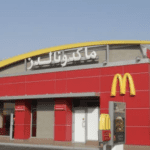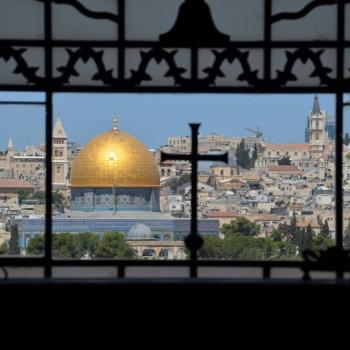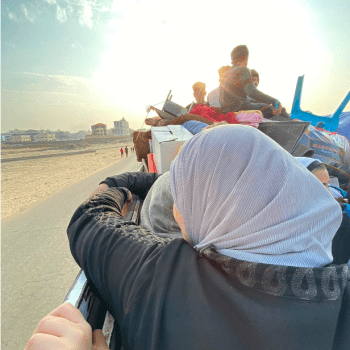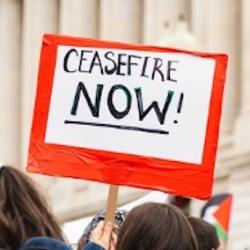Ramadan, the most treasured month in the Islamic year, commemorates the miracle of God’s revelation of the Qur’an to Mohammed. Muslims believe that the angel Gabriel came to Mohammed a number of times over the course of 23 years, and dictated parts of the Qur’an to him on an as-needed basis (read a few basics of Ramadan here).
According to tradition, the first Qur’anic revelation occurred in the month of Ramadan, the ninth of twelve months in the lunar calendar used in the Arab world during Mohammed’s time (still used today in parts of the Islamic world). Because the calendar is based on the moon’s cycles, a full year is 354 or 355 days. That’s why Ramadan falls on different dates each year on the Gregorian calendar.
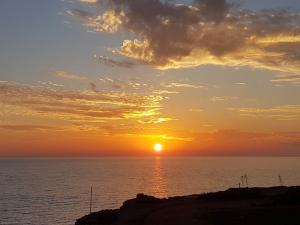
Physical dimension
When our family celebrated Ramadan in the 1990s, it was winter. The days were short, and fasting from sunrise to sunset was not hard – but shoveling three feet of snow on an empty stomach was a challenge (we lived in Chicago, near Lake Michigan). We knew that the southern hemisphere was having long, hot days.
A few years ago, I attended a women’s interfaith Ramadan iftar (evening meal that breaks the fast) on June 21, the longest day of the year – it was also hot and sunny. Our fellow fasters in the southern hemisphere had it easy.
But no matter the season, the cumulative effect of fasting and interrupted sleep is taxing.
Many Christians “give up” something for Lent – like chocolate, or Facebook, or caffeine – in order to identify with Christ’s sacrifice and up our self-discipline game. If you’ve done this kind of “fasting,” Muslims would consider you a lightweight (I think Jesus would too – “Really? You are identifying with my suffering by not eating candy??”)
Some Christian communities practice full fasts from time to time, coupled with intensive prayer (from what I can tell, they generally allow or even encourage drinking water). These fasts might last a day or more.
I’d have to give Islam the prize for most challenging type of fasting.
There are exceptions, though. Next time, I’ll share some stories from the ten years I lived in Saudi Arabia, the cradle of Islam, where Ramadan practices can go over the top. (If you are interested in learning about Islam, or if you question “business as usual” in Christianity – subscribe to my newsletter, and we can journey together!)
Spiritual dimension
During Ramadan, Muslims will (ideally) spend extra time in prayer, meditation, and Qur’an-reading.
In reality, many embrace the feasting more than the fasting, and find themselves a few pounds heavier (and no more righteous) by the end of the month. The household cook may spend his/her extra time cooking rather than meditating.
Here’s another awkward factoid: as diligently as Muslims seek spiritual renewal through fasting, it’s not uncommon, thanks to blood sugar dips and exhaustion, to see tempers flaring.
Now before we judge our Muslim neighbors’ slips, let’s recall our own tendency to make Christmas all about parties and presents and food, when it’s supposed to be a joyful commemoration of Jesus’ birth!
That is to say: Muslims and Christians are human.
Compassion
Another component of Ramadan is the cultivation of compassion for those less fortunate. As a day of fasting wears on, a Muslim will empathize with the plight of the poor. Of course, knowing that there’s a feast a few hours down the road can cut into the empathy – but still, it’s more than many Christians will do in our lifetimes to walk in the shoes of the poor.
Muslims usually donate generously to charity during Ramadan.
Of course, Christians have our ways of sharing with the less fortunate. We often feed the poor on Thanksgiving and provide Christmas gifts, hats, and mittens for needy children.
Charity is not a competitive sport, but certainly all people of all faiths can strive to be more generous, right?
So there you have it: the why and the when of Ramadan. Next time: some Ramadan memories from my days in Saudi Arabia!
(If you are energized by widening your perspective on faith, sign up for my free newsletter here!)
(If you would like to comment, please pop over to my Facebook page. All of my posts are there and open to constructive comment! I welcome your thoughts. And don’t forget to subscribe to my newsletter!)
RELATED READING:
- A sneak peek into Ramadan for non-Muslims
- Ramadan for Christians: fast, feast, FAT!
- Ramadan for Christians: a story of smuggling
- Ramadan for Christians: then sings my soul, “subhanallah”
FEATURED IMAGE: “Sunset” by oatsy40 is marked with CC BY 2.0.



